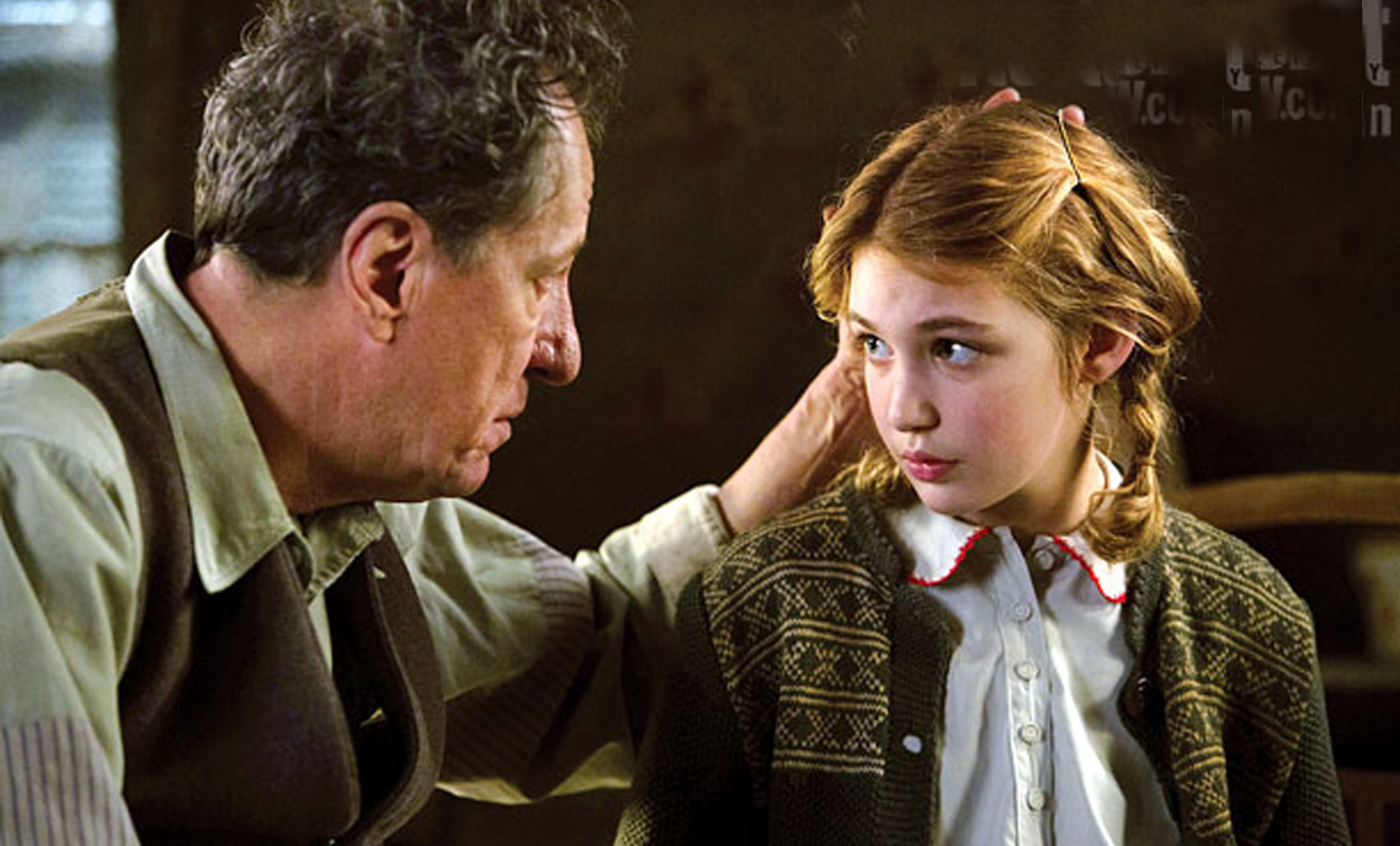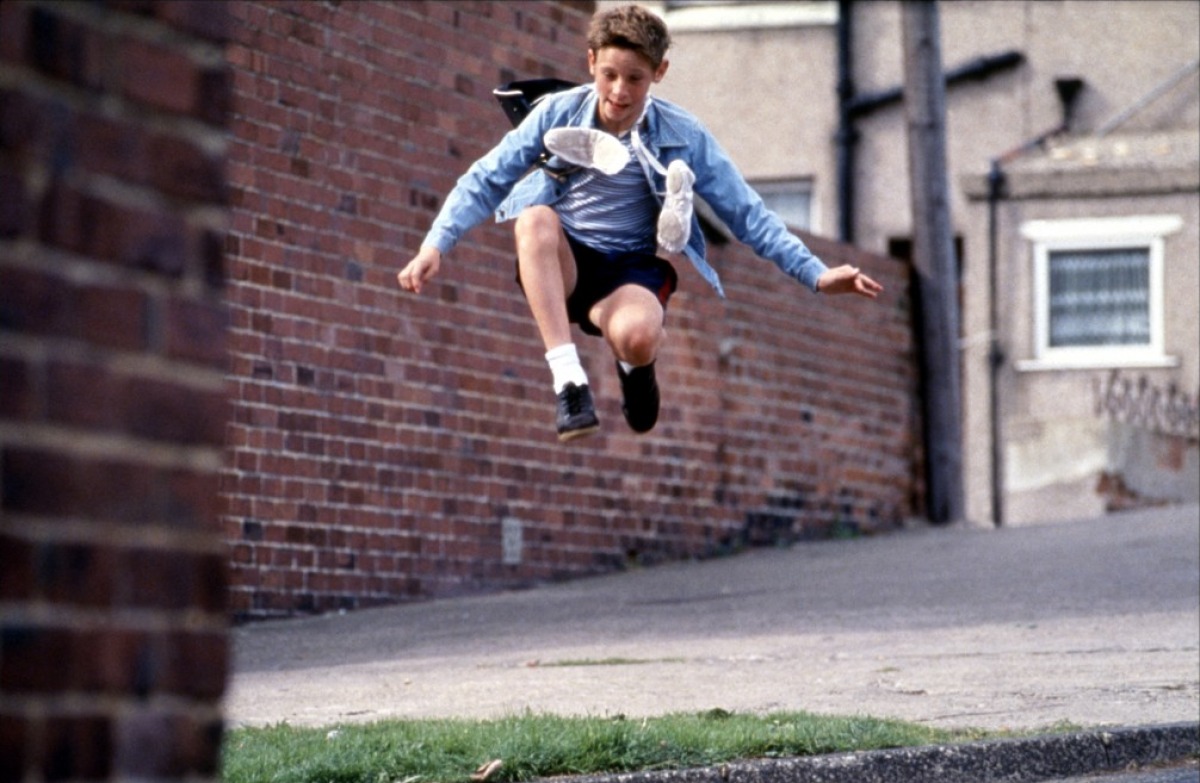Matthew Spivack chatted with the prolific editor before our short course with him and fellow acclaimed editor Nicolas Chaudeurge.

I recently spoke with John Wilson to learn more about his career, and hear some of his best advice for film editors. John is one of Britain’s leading film editors, with films including Billy Elliot, The History Boys, The Book Thief, London Road and Me Before You . Billy Elliot gained 13 BAFTA and three Oscar nominations including a BAFTA and an ACE Eddie nomination for Best Film Editing. Following this US nomination, John was invited to join American Cinema Editors (ACE). John’s television dramas have included Henry V and 13 episodes of ITV’s Downton Abbey, gaining him nominations for a BAFTA, two Emmys and an Eddie, as well as winning him two HPA awards.
“Cut Like a Pro with Editors John Wilson (Billy Elliot) & Nicolas Chaudeurge (Fish Tank)” will be held at Cinema Jam HQ at Collective Temperance Hospital on the 28th and 29th of January, from 10:00 to 18:00. Tickets are £259. Readers of the The Spread can use the promotional code ‘Spread10’, for a 10% discount. Click here for more info.
When did you know that film editing was the right path for you?
I discovered the process of filmmaking while I was still a student of graphic design at art college. Whilst at that college, we were given a project to make up a publicity envelop consisting of screen prints and various other artistic artifacts to promote the college for prospective students. To do this we were sent to the Le Mans 24-hour motor race in France. We were given the school’s most sophisticated cameras. And I chose to make a film by using stills of the world’s fastest motor race, which was a bit of a challenge. It was even more of a challenge when I discovered that I only had access to the necessary equipment for one day per week. I think that was set up so I would be discouraged from carrying on with the idea. But I persisted and I made a film about the race. It was entered into the Southampton film festival.
This experience was sufficient to show that I should further my education and become a student for a fourth and fifth year by going to Ravensbourne. Where there, I had a very frustrating time. The program was very focused on TV production instead of film. A lot of students were unhappy with the way it was all being taught on blackboards. So we went on strike after a year and sought employment somewhere. The head of our TV production course, despite having these revolting students on his hands, was friends with a film director who was at the Central Office of Information and he helped me with an introduction. I was offered a job as an assistant editor when in fact it would have been the start of my summer holidays after my first year of study. I was fortunate enough to be editing government documentaries and that is where I met Peter Greenaway (acclaimed director of The Cook, The Thief, His Wife, And Her Lover and several other films). We were all made redundant, but I knew by 25 that I wanted to be an editor full time. The idea of putting pictures together really intrigued me.
How do you adapt your approach to editing for so many different types of projects?
It varies based on the director. They are all different. Peter Greenaway had a way of throwing me in the deep end at the start of my editing career. He broke all recognized filmmaking rules. It was baptism by fire in that I was working in an unconventional way from the outset, which helped me adapt later. With Brian Percival, who I met while working on Downton Abbey, we have a symbiotic relationship. I edited The Book Thief for him and a lot of things went unsaid. That is the best way of working, but it is not always practical. If the director and editor live in the same city, there may be more frequent time together in the cutting room.

Geoffrey Rush and Sophie Nelisse starred in “The Book Thief” in 2013, which was directed by Brian Percival and edited by John Wilson.
Have you worked on projects where there wasn’t a lot of coordination? If so, what was the outcome?
Mostly, I’ve been very fortunate. In general terms, it is a myth that editors become involved significantly before the first day of principle photography. Rarely does that happen. In The Book Thief, I arrived in Germany on a Wednesday and they started filming during the weekend. And that is longest run in I’ve experienced. The director and the editor might talk beforehand, maybe to discuss movies to watch because they are shot in a style that is similar to what is desired. But that can be it.
What about your role as an editor inspires you to get out of bed in the morning? What makes you want to sleep for another hour or two?
Overall, one of my truisms in the filmmaking process is that there is always at least one scene that is quite tricky. And it is the challenge of making that work that drives me.
On a day-to-day basis, filmmaking is divided into two parts for editors. First, we edit what is shot each day. It isn’t an all-encompassing task and you can usually do it fairly quickly. Next, when filming is over, you work with the director and in some ways, you are starting over. You throw the script away at this point and work with what you have. Often, that is different from what the director envisioned or what the script demanded. At this point, I have no problem whatsoever in getting on with it, because it is the most interesting part.
On the other hand, if you are working on a particularly low budget project, especially in TV, the editor is dispensed with after the picture is locked. It sometimes is a little foolhardy to dispense with that knowledge. The editor is head of department for editing, which covers sound editing and the post production that goes beyond picture lock. A lot of work can be saved if the editor is kept on.
What are the most important tips you offer to new filmmakers who are honing their editing skills?
We now have a society in UK and US where attention spans are very much shorter than they were 30-40 years ago. And people mix this up with the need to cut everything quickly. So, my advice would be that your shots shouldn’t overstay their welcome, but also you don’t want them to be too short. Editing isn’t about fast cutting; it is about the development of the story where you have peaks and troughs. This is something I learned while working with Stephen Daldry on Billy Elliot. He took his knowledge of theatre directing, about how a play would proceed, and imposed it on the project.
Because of the use of digital cameras, people can shoot as much as they like. Thus, they shoot everything in sight. But filmmakers should focus on more preparation. Don’t just point your camera and think I need to do a master shot, a mid shot, and two close-ups of the whole scene. Think ahead and work out how that is going to progress, and work as a team to save time in the shooting process. It also saves you from an awful lot of picture rushes that the editor needs to wade through.

A scene from “Billy Elliot”
What is the criteria you use to select your next project?
I know when I read a script if it is going to suit me. I think about whether the project is the type of film that I would go to see at the cinema. Also, my agent knows my strong points and the type of work that I like. An agent should know which are the inappropriate scripts as well.
How has new technology changed your job and what is your outlook for the future?
I’ve been thinking about this and talking to people about it recently. I’m not someone who has a misty-eyed nostalgia for those days when we were editing on celluloid and physically cutting to print. But the move to editing on a non-linear computer has reduced the number of staff. Typically, you would have a first assistant editor, second assistant editor, and a trainee in the cutting room. It is a good training opportunity for young editors and a way to bounce ideas off each other.
Sadly, we are moving towards the breakup of the film cutting room and the camaraderie that comes with it. We are going towards a time where editors will sit at home with laptops to edit straight from shots on the studio floor. That isn’t particularly appealing sociologically speaking. Filmmaking has always been a collaborative effort. This change might appeal to the financial side of the industry though. Art versus commerce has always been the biggest debate in the filmmaking world.
What attracted you to partner with Cinema Jam and ShortCourses@NFTS for the editor training?
Jared (Cinema Jam’s founder) contacted me and I said I’d be interested. Then I came to the Cinema Jam Christmas screening in Spitalfields. I enjoyed the event and I was impressed with the array of work that was on show. I have two daughters who are in the film industry, one who is in hair and makeup and another who is a documentary producer, and I’m always on the lookout for organizations where young filmmakers can further themselves. I think Cinema Jam is a really good organization to be attached to.
Follow John’s work at http://www.johnwilsoneditor.com/


